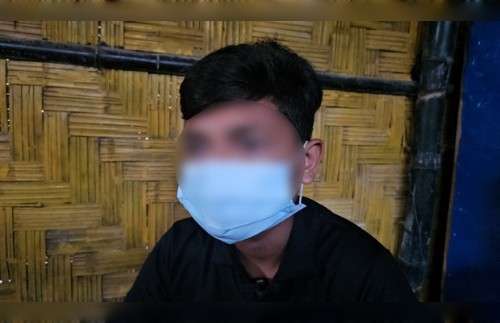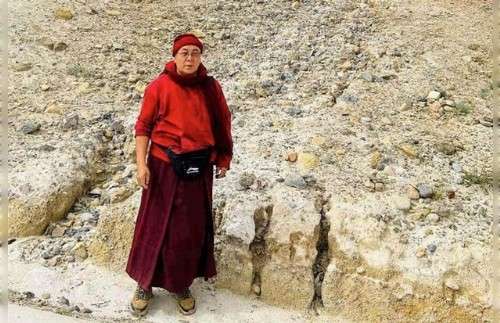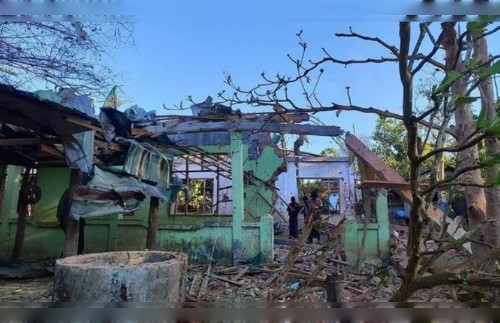
The director of an online magazine that monitors religious freedom in China has vowed to continue his organization’s work documenting the oppression of Uyghurs in the Xinjiang Uyghur Autonomous Region (XUAR), despite the arrest and interrogation of dozens of its contributors in recent months.
Bitter Winter, a website launched in May 2018 by the Italian research center CESNUR, routinely publishes articles by scholars on the state of religion in China, as well as testimonies from victims of religious persecution, and photos and video documenting human rights violations submitted by citizen journalists from inside the country.
In August 2018, China banned Bitter Winter and since then, the organization has said that at least 45 of its contributors have faced arrest and interrogation based on charges of “divulging state secrets” or “involvement in infiltration by foreign forces” for filming incidents of, or gathering news about, the Chinese Communist Party’s (CCP) persecution of religious freedom and violation of human rights.
Some of the reporters, according to Bitter Winter, have been sent to for mandatory indoctrination at political “re-education camps,” where authorities are believed to have detained up to 1.1 million Uyghurs and other Muslim ethnic minorities accused of harboring “strong religious views” and “politically incorrect” ideas throughout the XUAR since April 2017.
At least one contributor, from the XUAR, was arrested at the end of September 2018 after filming one of the camps and producing an investigative report into the camp network. His whereabouts are unknown.
Speaking to RFA’s Uyghur Service, Italian journalist and Bitter Winter director Marco Respinti said that having contributors on the ground providing content from inside of China is what “makes us different from other publications,” but acknowledges that the work is dangerous.

“We have reporters in Xinjiang sending out pictures and sometimes even videos from inside the camps, but for obvious reasons, we don’t disclose their identities,” he said, adding that “they do that at the risk of their own lives.”
“Bitter Winter is very young—it was founded in May [2018]—but we already have had huge success. We owe all of this success to our reporters and correspondents who live in China and make us different.”
Respinti said that religious freedom and human rights “are a big problem in China,” but called the situation facing Uyghurs in the XUAR “particularly astonishing to us.”
He noted that the detainees in re-education camps have been taken into custody because of their faith and because the Chinese government is “trying to completely erase the Uyghur presence” in the XUAR, and said Bitter Winter is devoted to revealing the truth about what is happening in the region.
Meanwhile, Respinti said, China’s government has gone on the attack against his website.
Bitter Winter, a website launched in May 2018 by the Italian research center CESNUR, routinely publishes articles by scholars on the state of religion in China, as well as testimonies from victims of religious persecution, and photos and video documenting human rights violations submitted by citizen journalists from inside the country
In addition to arrests and detentions of its contributors, Bitter Winter has been the target of repeated hacking attacks since its launch that he believes originated in China.
“Of course [China’s government is] not very happy, and this is good for us because it means that we are doing the right thing,” he said.
“They are not happy with being exposed.”
But the journalist said that Bitter Winter will continue with its mission of informing the international community about the persecution of all religion in China, with a focus on the Uyghurs, no matter the cost.
“We say there is hope out there, but of course we cannot think that the problem is over,” Respinti said.
“We’re happy if just one Uyghur can find some relief because of the information work that we do daily, but there are still thousands and thousands of them suffering, so we must keep on,” he added.
“Until the last person … is ill-treated because of his or her faith, we will perform our duty of denouncing the situation. We will never shut up.”
Camp network
Though Beijing initially denied the existence of re-education camps, Shohrat Zakir, chairman of the XUAR, told China’s official Xinhua news agency in October 2018 that the facilities are an effective tool to protect the country from terrorism and provide vocational training for Uyghurs.
Reporting by RFA’s Uyghur Service and other media organizations, however, has shown that those in the camps are detained against their will and subjected to political indoctrination, routinely face rough treatment at the hands of their overseers, and endure poor diets and unhygienic conditions in the often overcrowded facilities.
Adrian Zenz, a lecturer in social research methods at the Germany-based European School of Culture and Theology, has said that some 1.1 million people are or have been detained in the camps—equating to 10 to 11 percent of the adult Muslim population of the XUAR.
In November 2018, Scott Busby, the deputy assistant secretary in the Bureau of Democracy, Human Rights and Labor at the U.S. Department of State, said there are “at least 800,000 and possibly up to a couple of million” Uyghurs and others detained at re-education camps in the XUAR without charges, citing U.S. intelligence assessments.
Citing credible reports, U.S. lawmakers Marco Rubio and Chris Smith, who head the bipartisan Congressional-Executive Commission on China, recently called the situation in the XUAR “the largest mass incarceration of a minority population in the world today.”
[Reported by Zulhayat Mamut for RFA’s Uyghur Service. Written in English by Joshua Lipes]
Copyright © 1998-2016, RFA. Used with the permission of Radio Free Asia, 2025 M St. NW, Suite 300, Washington DC 20036
















